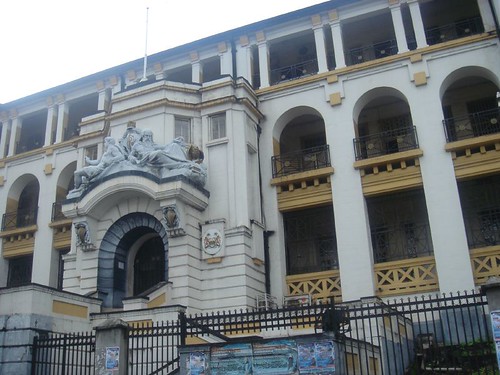Sierra Leone court needs more funds to try killers
 UNITED NATIONS, June 8 (Reuters) - A Sierra Leone court is running out of money to try nine suspects accused of heinous crimes -- chopping off arms and legs, raping, enslaving girls and forcing boys to kill.
UNITED NATIONS, June 8 (Reuters) - A Sierra Leone court is running out of money to try nine suspects accused of heinous crimes -- chopping off arms and legs, raping, enslaving girls and forcing boys to kill.
The president of the court, Justice George Gelaga King of Sierra Leone, and the prosecutor, American Stephen Rapp, told the U.N. Security Council on Friday they expected to wrap up trials and appeals by the end of 2009.
But King said available funds of the court's $89 million budget would be exhausted by November. And Rapp said another $60 million was needed from voluntary contributions.
"The challenges facing the special court are serious," said Rapp, a former U.S. attorney (prosecutor) in Iowa.
Richard Dicker, a counsel for Human Rights Watch, said the "lesson to the Security Council is that reliance on voluntary contributions from states is no way to operate a court."
The tribunal, established in 2002, is a mixed court with personnel appointed by Sierra Leone and the United Nations.
All trials are held in the Sierra Leone capital Freetown -- except for former Liberian President Charles Taylor, who is in The Hague, Netherlands to prevent unrest in West Africa.
Taylor, who refuses to attend his trial, is accused of fomenting war by giving brutal rebels guns so he could enrich himself with Sierra Leone's diamonds. In turn the rebels maimed civilians of all ages, raped women and girls and forced young boys to join them in a killing spree.
The court issued 13 indictments, but three suspects have died and the whereabouts of one is unknown.
King told the council that after the legal proceedings the court needed to find countries that would shelter witnesses as well as make sure legal papers are preserved. The court also needed help in preparing radio and video screenings for the public in Sierra Leone and Liberia.
Canada's deputy ambassador, Henri Paul Normandin, whose country chairs a U.N. committee for the court, said financing was the most critical issues facing the tribunal.
"Throughout its history, the court has struggled because it has often been unsure from one month to the next whether there would be money in the bank," Normandin said.
Some 50,000 people are said to have died during a decade of warfare that began in 1991. Intervention by Britain, the former colonial power, and U.N. peacekeepers kept the rebels from overthrowing the government.
But reports by Reuters showed the government was making little progress in tackling corruption, was squandering foreign aid and leaving its most vulnerable citizens as destitute as they were before the war ended five years ago.
Link to Reuters AlertNet - Sierra Leone court needs more funds to try killers

